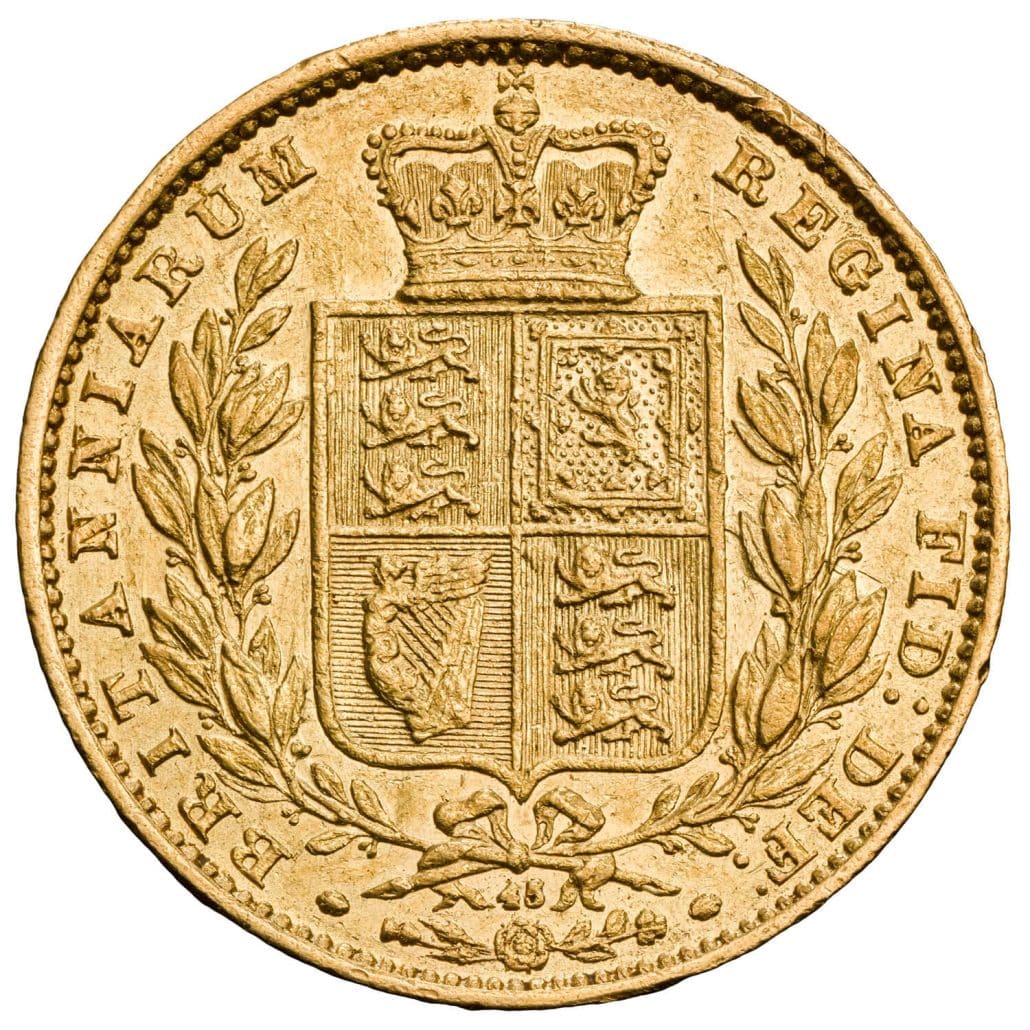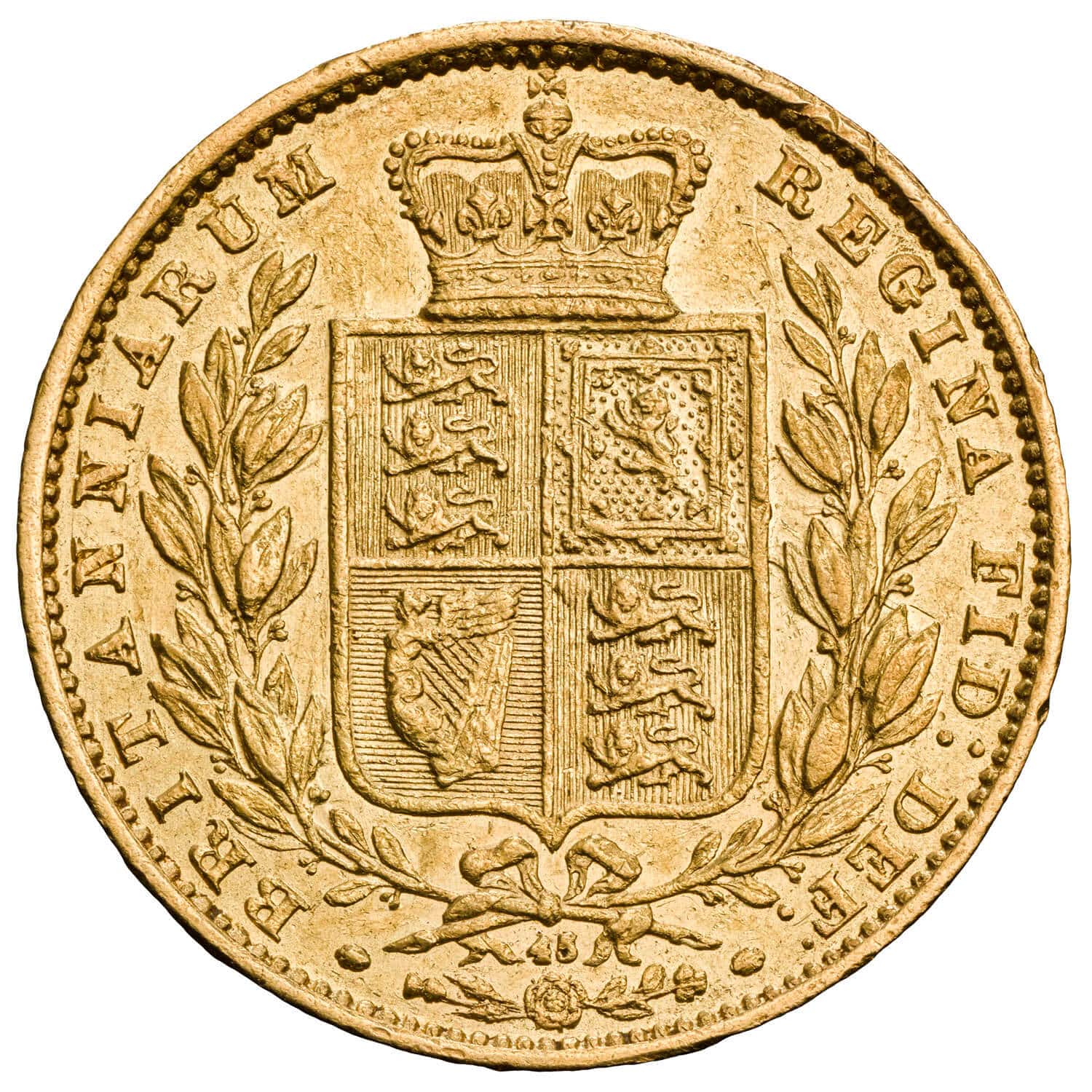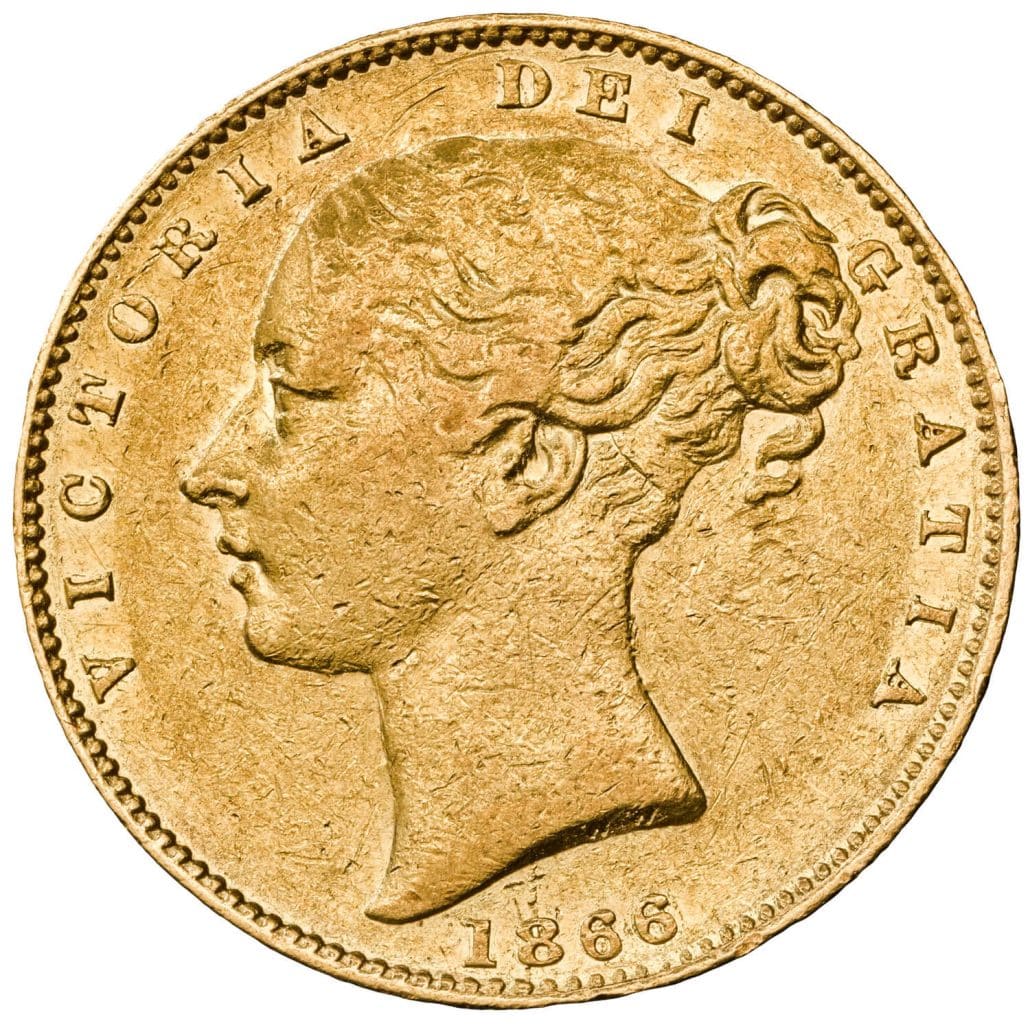The 1866 Queen Victoria Young Head Shield Back coin is a rare and highly sought-after numismatic treasure. This coin, minted during Queen Victoria’s reign, bears the iconic Young Head portrait on the obverse and the majestic Shield Back design on the reverse. With its historical significance, intricate design, and limited availability, it has become a prized possession for coin collectors and investors worldwide.
Historical Background
The 19th century marked a significant period of transformation and progress in the United Kingdom. Queen Victoria ascended to the throne in 1837 and reigned until 1901, witnessing an era of industrialization, expansion, and cultural change. The coinage of this period reflected the evolving political and economic landscape of the nation. The 1866 Queen Victoria Young Head Shield Back coin stands as a testament to this era and offers a glimpse into the history of the British Empire.
Design and Specifications
Obverse Design
The obverse of the 1866 Queen Victoria Young Head Shield Back coin features a youthful portrait of Queen Victoria. Known as the “Young Head” design, it depicts the Queen wearing a crown with her hair tied in a bun. This portrait was designed by William Wyon, a talented engraver who served as the Chief Engraver at the Royal Mint. The inscription “VICTORIA D:G: BRITANNIAR: REGINA F:D:” surrounds the portrait, indicating that Victoria is the Queen of Britain by the grace of God.
Reverse Design
On the reverse side of the coin, the Shield Back design takes center stage. The shield, symbolizing the strength and power of the British Empire, is intricately detailed with various elements representing the United Kingdom. These include the three lions of England, the lion rampant of Scotland, and the harp of Ireland. The shield is supported by a crowned royal lion on the left and a unicorn on the right. The Latin motto “HONI SOIT QUI MAL Y PENSE” is inscribed above the shield, meaning “Shame on him who thinks evil of it.” The denomination, date, and mintmark are also featured prominently.
Specifications
- Denomination: Sovereign
- Composition: Gold (22 carat)
- Diameter: 22.05 mm
- Weight: 7.9881 grams
- Edge: Reeded
- Designer: William Wyon

Historical Significance
Queen Victoria’s Reign
Queen Victoria’s reign, also known as the Victorian era, was a time of significant social, political, and economic change. She became Queen at the age of 18 and ruled for a remarkable 63 years, making her the longest-reigning monarch in British history until surpassed by Queen Elizabeth II. During her reign, the British Empire expanded, and the Industrial Revolution transformed the nation. The 1866 Queen Victoria Young Head Shield Back coin serves as a tangible representation of this influential era.
The Shield Back Design
The Shield Back design, featured on the reverse of the coin, holds historical significance as it was introduced in 1838 and remained in use until 1887. The design symbolized the strength and unity of the British Empire, with the shield representing the nation’s defenses. The inclusion of the lions, unicorn, and harp highlights the union between England, Scotland, and Ireland, respectively. The Shield Back design was an integral part of the coinage during Queen Victoria’s reign and played a role in shaping the visual identity of the British coinage system.
Coinage Act of 1816
The Coinage Act of 1816 standardized the British coinage system and laid the foundation for the designs and specifications of the 1866 Queen Victoria Young Head Shield Back coin. This act established the gold sovereign as the primary unit of currency and defined its weight, diameter, and purity. The Act also introduced the practice of featuring the reigning monarch’s portrait on the obverse of the coins. The Young Head portrait, designed by William Wyon, became an iconic representation of Queen Victoria during her early years on the throne.
Rarity and Scarcity
Mintage Figures
The mintage figures of the 1866 Queen Victoria Young Head Shield Back coin contribute to its rarity and scarcity. According to historical records, a total of 1,947,000 sovereigns were minted in 1866. However, it is important to note that not all of these coins have survived over the years. Due to various factors such as circulation, wear and tear, and the melting down of gold coins for their intrinsic value, the number of available coins has significantly decreased, further enhancing their rarity.
Survival Rates
The survival rates of the 1866 Queen Victoria Young Head Shield Back coin vary, making it a scarce find for collectors. Many factors contribute to the survival rate of a coin, including the conditions under which it circulated, the number of coins that were melted down, and the efforts of collectors and enthusiasts to preserve and protect these historical treasures. As a result, finding a well-preserved example of the 1866 Queen Victoria Young Head Shield Back coin adds to its desirability and value.
Condition and Grading
The condition of a coin plays a crucial role in determining its value and desirability among collectors. Coin grading, a standardized system used to assess a coin’s condition, evaluates factors such as wear, damage, and overall preservation. The 1866 Queen Victoria Young Head Shield Back coin is often graded on a scale from Poor (PO) to Mint State (MS). Coins in higher grades, such as those in Extremely Fine (EF) or Uncirculated (UNC) condition, command higher prices due to their superior quality and preservation.
Collecting and Investing
Coin Collecting Market
Coin collecting is a popular hobby and investment avenue for numismatists and enthusiasts around the world. The market for rare coins, such as the 1866 Queen Victoria Young Head Shield Back coin, remains robust, with collectors constantly seeking out unique and historically significant pieces. Collectors are drawn to the beauty, rarity, and historical value of these coins, making them highly desirable in the numismatic community.
Factors Affecting Value
Several factors influence the value of the 1866 Queen Victoria Young Head Shield Back coin in the collecting and investing market. These factors include the coin’s rarity, historical significance, condition, demand, and market trends. Coins in excellent condition, with low mintage figures, and a strong collector demand tend to command higher prices. Additionally, the overall state of the coin market, gold prices, and economic factors can also impact the value of rare coins.
Rarity and Desirability
The rarity and desirability of the 1866 Queen Victoria Young Head Shield Back coin contribute to its value in the collecting and investing market. As a coin with limited availability and historical significance, it appeals to both serious collectors and investors looking to diversify their portfolios. The combination of its rarity, intrinsic value as a gold coin, and the compelling story behind its design make it a highly coveted piece in the numismatic world.
Pricing and Valuation
Determining Factors
Several factors come into play when determining the price and valuation of the 1866 Queen Victoria Young Head Shield Back coin. These factors include the coin’s condition, rarity, mintage figures, demand, and market conditions. Coins in better condition, with lower mintage figures, and a strong collector following are likely to command higher prices. Additionally, fluctuations in the gold market and the overall state of the coin collecting market can influence the coin’s value.
Auction Records
Auction records provide valuable insights into the pricing and valuation of rare coins such as the 1866 Queen Victoria Young Head Shield Back coin. Monitoring past auction results can give collectors and investors an idea of the market’s perception of the coin’s value. Notable sales and record-breaking prices provide benchmarks for assessing the desirability and worth of these coins within the numismatic community.
Professional Appraisal
For a comprehensive and accurate assessment of the value of the 1866 Queen Victoria Young Head Shield Back coin, seeking a professional appraisal is advisable. Numismatic experts, coin dealers, and reputable grading services can provide insights into the coin’s condition, rarity, and market value. Their expertise and knowledge of the numismatic market can help determine an accurate and fair valuation for these coins.
Notable Varieties and Errors
Die Varieties
Die varieties are variations in the design of a coin caused by differences in the dies used during the minting process. These variations can include differences in lettering, spacing, or other design elements. The 1866 Queen Victoria Young Head Shield Back coin has several die varieties that collectors find intriguing. These variations add to the historical significance and desirability of the coin, making them sought after by collectors.
Minting Errors
Minting errors, though rare, can occur during the production of coins. These errors can range from minor flaws to major mistakes that significantly impact the coin’s design or composition. Collectors often find minting errors fascinating and valuable due to their rarity and uniqueness. While the 1866 Queen Victoria Young Head Shield Back coin is generally well-minted, the occasional error coin may surface, adding an element of excitement to the collecting community.
Variations in Design
Variations in design can occur due to changes in the dies or artistic choices made during the minting process. These variations can include differences in the positioning of elements, the size of certain features, or other artistic nuances. Collectors keen on building a comprehensive collection of the 1866 Queen Victoria Young Head Shield Back coins often seek out these design variations, as they contribute to the overall diversity and appeal of their collections.
Preservation and Care
Proper Handling Techniques
Proper handling techniques are essential to preserve the condition and integrity of the 1866 Queen Victoria Young Head Shield Back coin. When handling rare coins, it is crucial to avoid touching the coin’s surfaces directly. The natural oils and acids on our skin can cause damage to the coin’s finish and potentially degrade its value. Always use gloves or handle the coin by the edges to minimize the risk of damage.
Storage and Display
To ensure the long-term preservation of the 1866 Queen Victoria Young Head Shield Back coin, proper storage and display methods are crucial. Coins should be stored in airtight containers, such as coin capsules or holders, to protect them from exposure to air, moisture, and other potential contaminants. Additionally, storing coins in a cool, dry, and stable environment can help prevent deterioration and maintain their condition over time.
Cleaning and Conservation
Approach cleaning coins with caution, as improper methods can damage the surface and diminish value. Generally, experts recommend avoiding cleaning unless absolutely necessary. If cleaning is required, consult a professional numismatist or conservator specializing in coin conservation to ensure appropriate methods are used. Incorrect cleaning can cause irreversible damage and loss of value.
Authentication and Certification
Certified Coin Grading
Certified coin grading provides collectors and investors with an independent assessment of a coin’s authenticity, condition, and quality. Professional grading services, such as the Professional Coin Grading Service (PCGS) or the Numismatic Guaranty Corporation (NGC), evaluate coins based on established grading standards. Coins encapsulated in tamper-evident holders with a certified grade provide assurance and peace of mind to buyers and sellers in the numismatic market.
Trusted Authentication Services
Authentication services play a crucial role in verifying the authenticity of rare coins like the 1866 Queen Victoria Young Head Shield Back coin. These services employ advanced tools, technologies, and expertise to determine the coin’s genuineness and detect any signs of counterfeiting or alteration. Seeking authentication from reputable and trusted services adds credibility and value to a coin, ensuring that collectors are investing in genuine numismatic treasures.
Famous Collections and Sales
Noteworthy Collections
The 1866 Queen Victoria Young Head Shield Back coin has found its place in many noteworthy coin collections around the world. Private collectors, museums, and numismatic institutions treasure these coins for their historical significance and artistic beauty. Notable collections that include the 1866 Queen Victoria Young Head Shield Back coin have showcased the coin’s importance in the numismatic world, further enhancing its desirability and value.
Record-Breaking Sales
Occasionally, rare coins like the 1866 Queen Victoria Young Head Shield Back coin achieve record-breaking sales at auctions or private sales. These notable sales capture the attention of collectors and investors, driving up the market value and desirability of these coins. The record-breaking prices paid for these coins highlight their rarity, historical significance, and the passion that collectors have for acquiring these numismatic treasures.
Historical Significance
The historical significance of the 1866 Queen Victoria Young Head Shield Back coin cannot be understated. It represents an era of change, progress, and cultural transformation in the United Kingdom during Queen Victoria’s reign. The coin’s design, mintage figures, and survival rates provide valuable insights into the economic and political landscape of the time. Collectors and historians alike appreciate the historical context and narrative that these coins offer.
Conclusion
Investment Potential
The 1866 Queen Victoria Young Head Shield Back coin presents a compelling investment opportunity for collectors and investors alike. Its rarity, historical significance, and aesthetic appeal make it a sought-after piece in the numismatic market. As with any investment, careful research, due diligence, and consultation with experts are essential to make informed decisions and maximize the potential return on investment.
Historical Value
Beyond its investment potential, the 1866 Queen Victoria Young Head Shield Back coin holds immense historical value. It serves as a tangible connection to the past, offering a glimpse into the reign of Queen Victoria and the evolving British Empire. Owning this coin allows collectors to become custodians of history, preserving and appreciating the stories and significance that these numismatic treasures carry.
The Joy of Coin Collecting
Ultimately, the joy of coin collecting lies in the pursuit of knowledge, the thrill of discovery, and the appreciation of beauty and history. The 1866 Queen Victoria Young Head Shield Back coin represents a piece of this captivating world, inviting collectors to embark on a journey of exploration and fascination. Whether collecting for pleasure, investment, or both, the 1866 Queen Victoria Young Head Shield Back coin offers a rewarding experience for numismatists worldwide.

